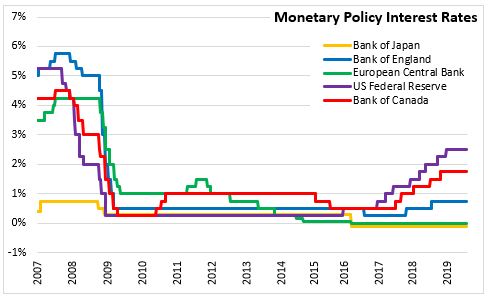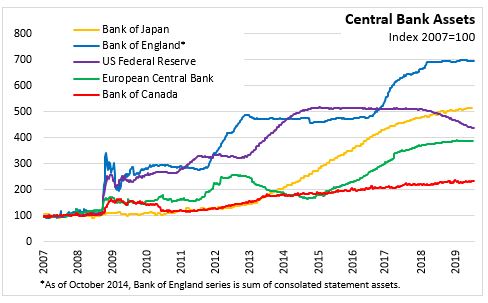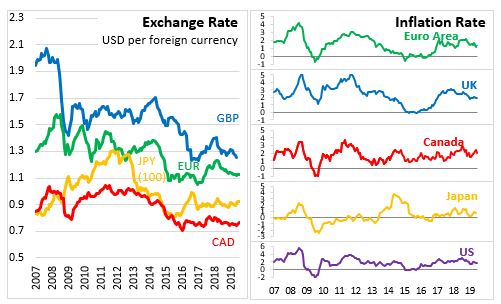The Economics and Statistics Division maintains archives of previous publications for accountability purposes, but makes no updates to keep these documents current with the latest data revisions from Statistics Canada. As a result, information in older documents may not be accurate. Please exercise caution when referring to older documents. For the latest information and historical data, please contact the individual listed to the right.
<--- Return to Archive
For additional information relating to this article, please contact:
July 25, 2019MONETARY POLICY: EURO AREA At today’s meeting, the Governing Council of the European Central Bank (ECB) announced that the key ECB interest rates are unchanged with the interest rates on main refinancing operations, marginal lending facility and the deposit facility at 0.00%, 0.25% and -0.40% respectively. The rates are expected to remain at their present levels at least through the first half of 2020 and for as long as necessary in order to converge inflation levels to around 2 per cent over the medium term. The ECB noted the need for highly accommodative stance of monetary policy for prolonged period of time as inflation has been persistently below target and will examine options to reinforce forward guidance, explore tiered reserve remuneration, and potential new asset purchases.
The euro area real GDP grew 0.4 per cent in Q1 2019 after 0.2 per cent in Q4 2018. Incoming economic data shows slower growth in coming quarters due to weakness in international trade from uncertainty. Improvements in services, construction sector and labour market should continue. The euro area economic expansion is supported by favourable financing conditions, employment and wage growth, and mildly expansionary fiscal stance.
Euro Area inflation was 1.3 per cent in June 2019, up from 1.2 per cent in May as lower energy prices were offset by rising prices in the index excluding food and energy. Underlying inflation remains muted and inflation expectations have declined. Labour cost pressures have strengthened amid higher capacity utilisation and tighter labour markets, but pass-through of cost pressures is taking longer than anticipated.



Sources:
European Central Bank
<--- Return to Archive